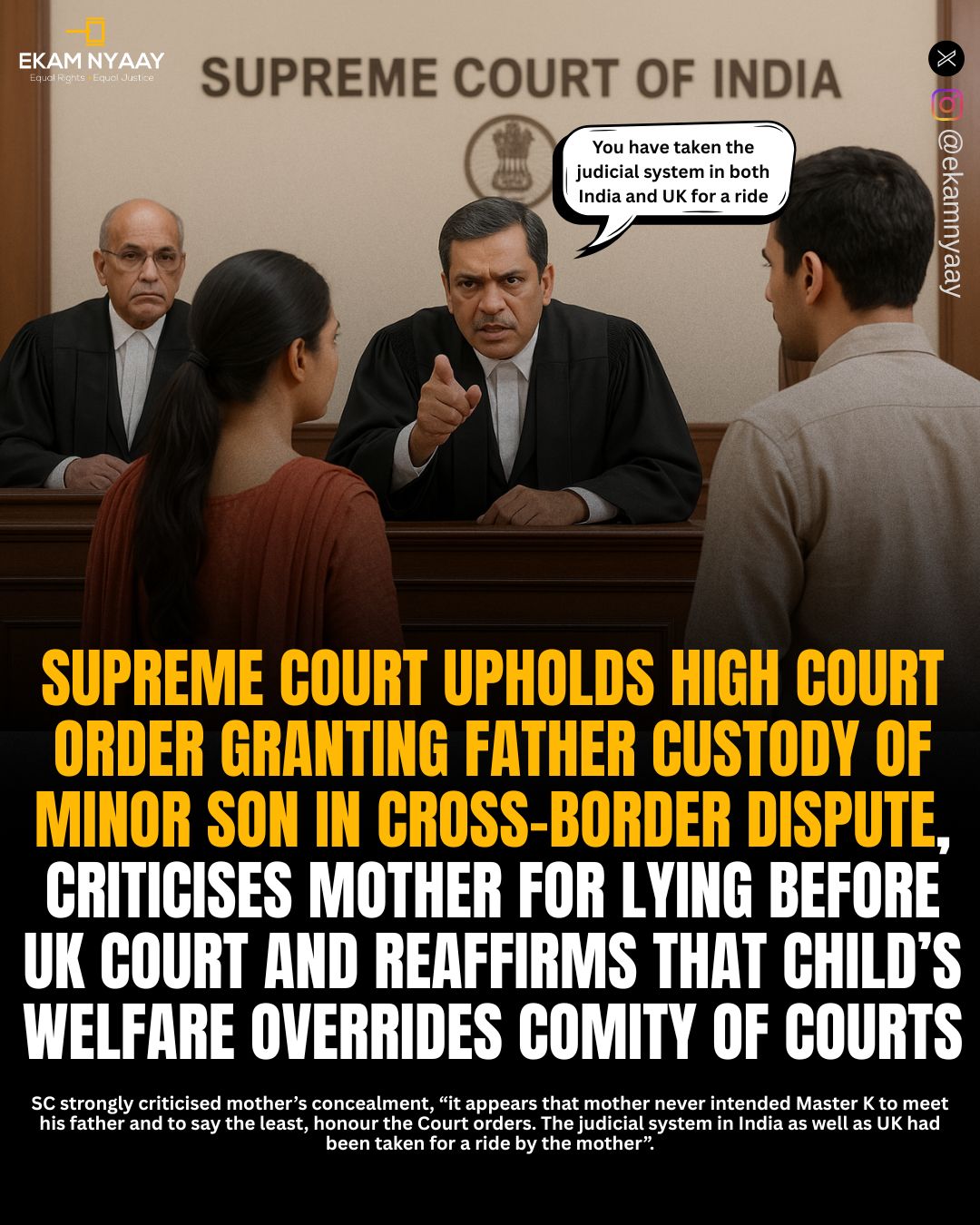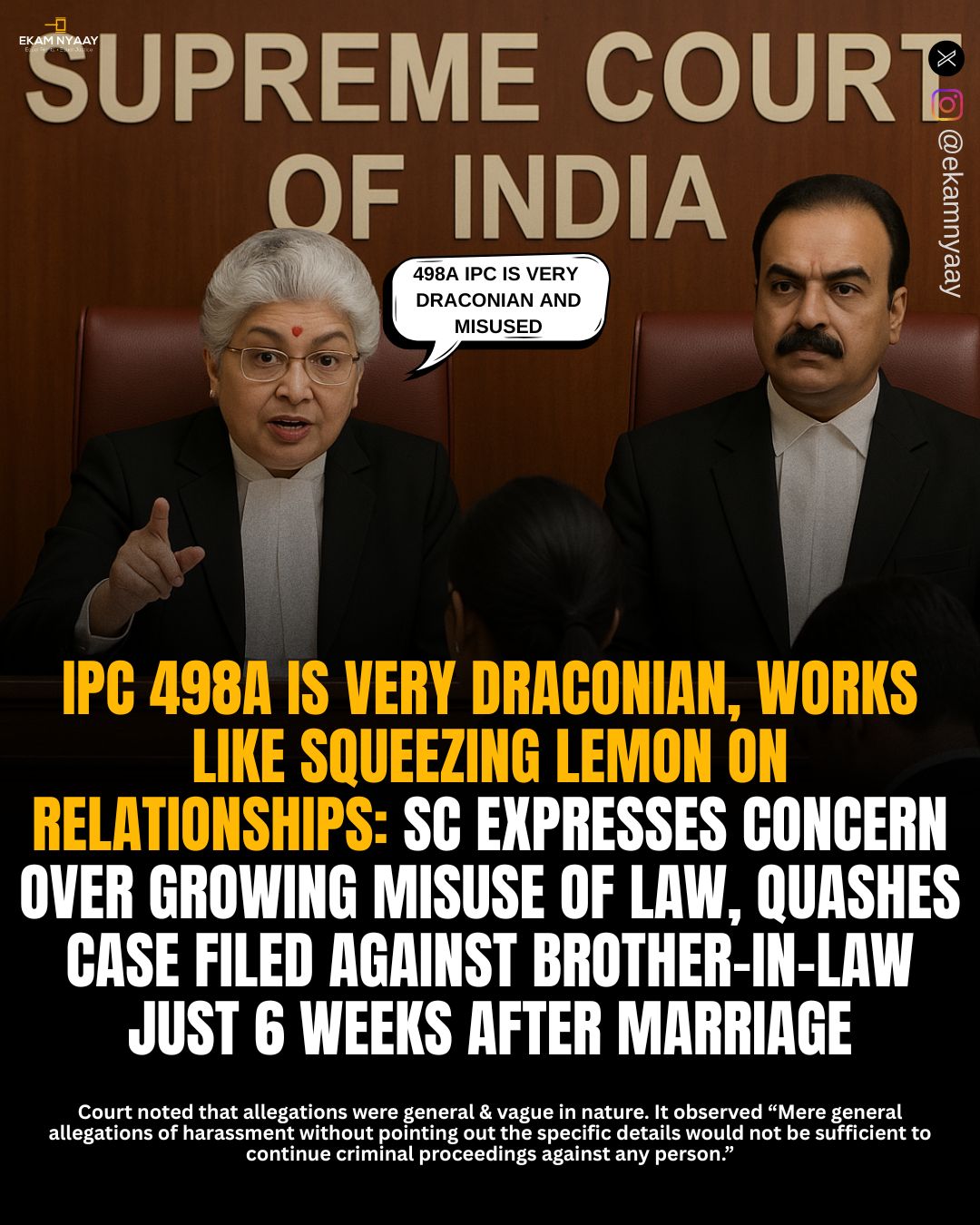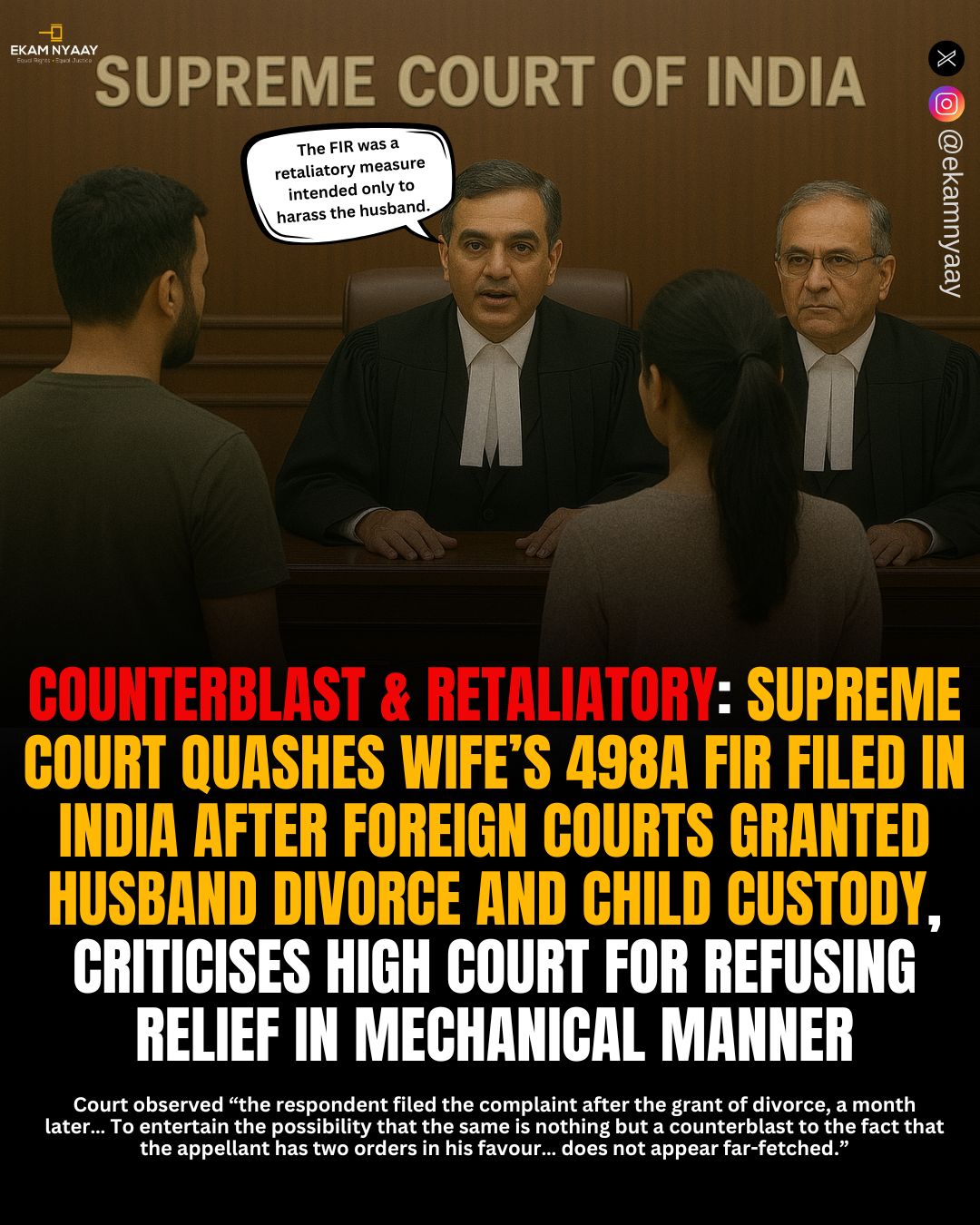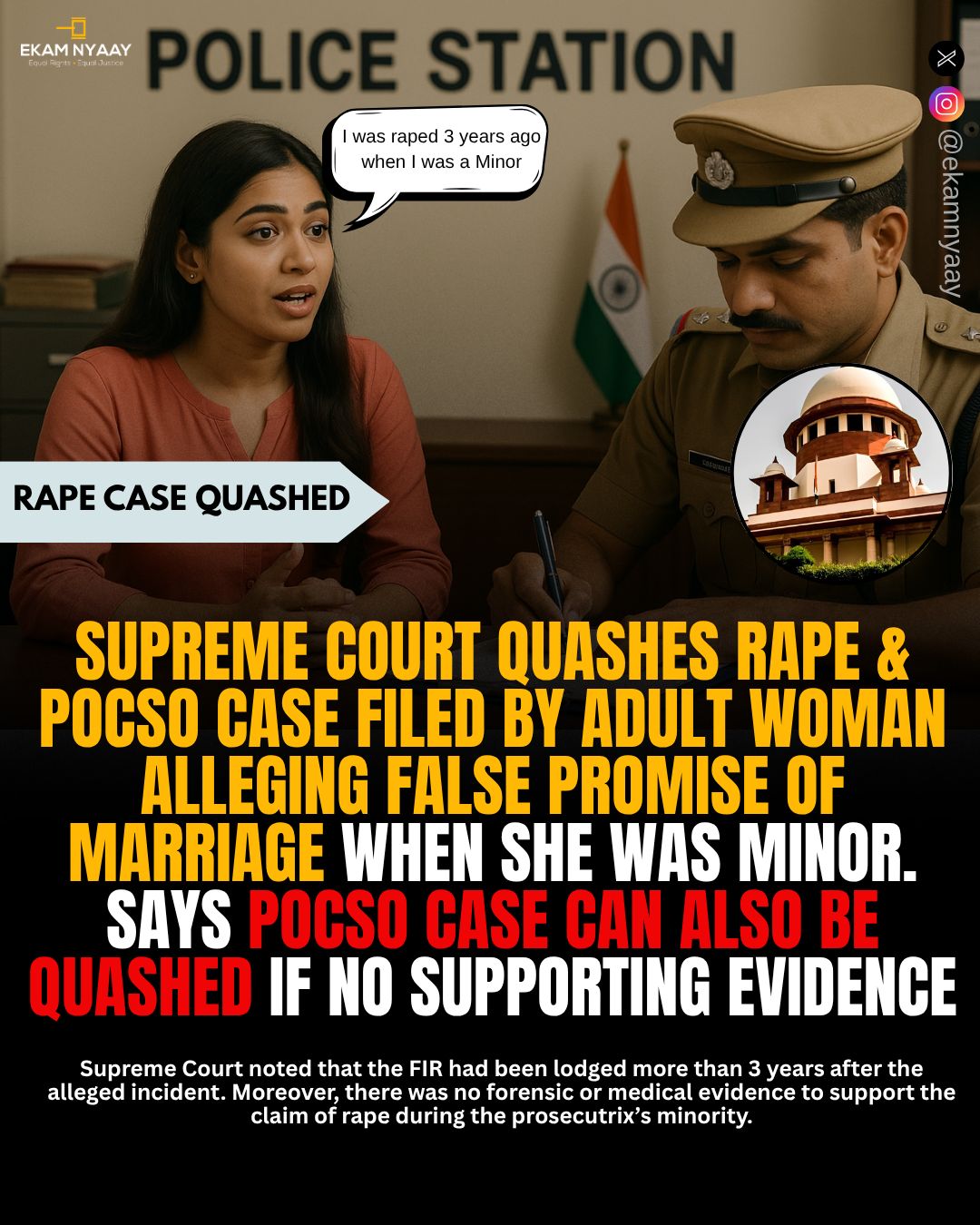
-
Supreme Court


SC - Consensual Sex Cannot be called Rape Retrospectively in cases of Failed Relatiosnships
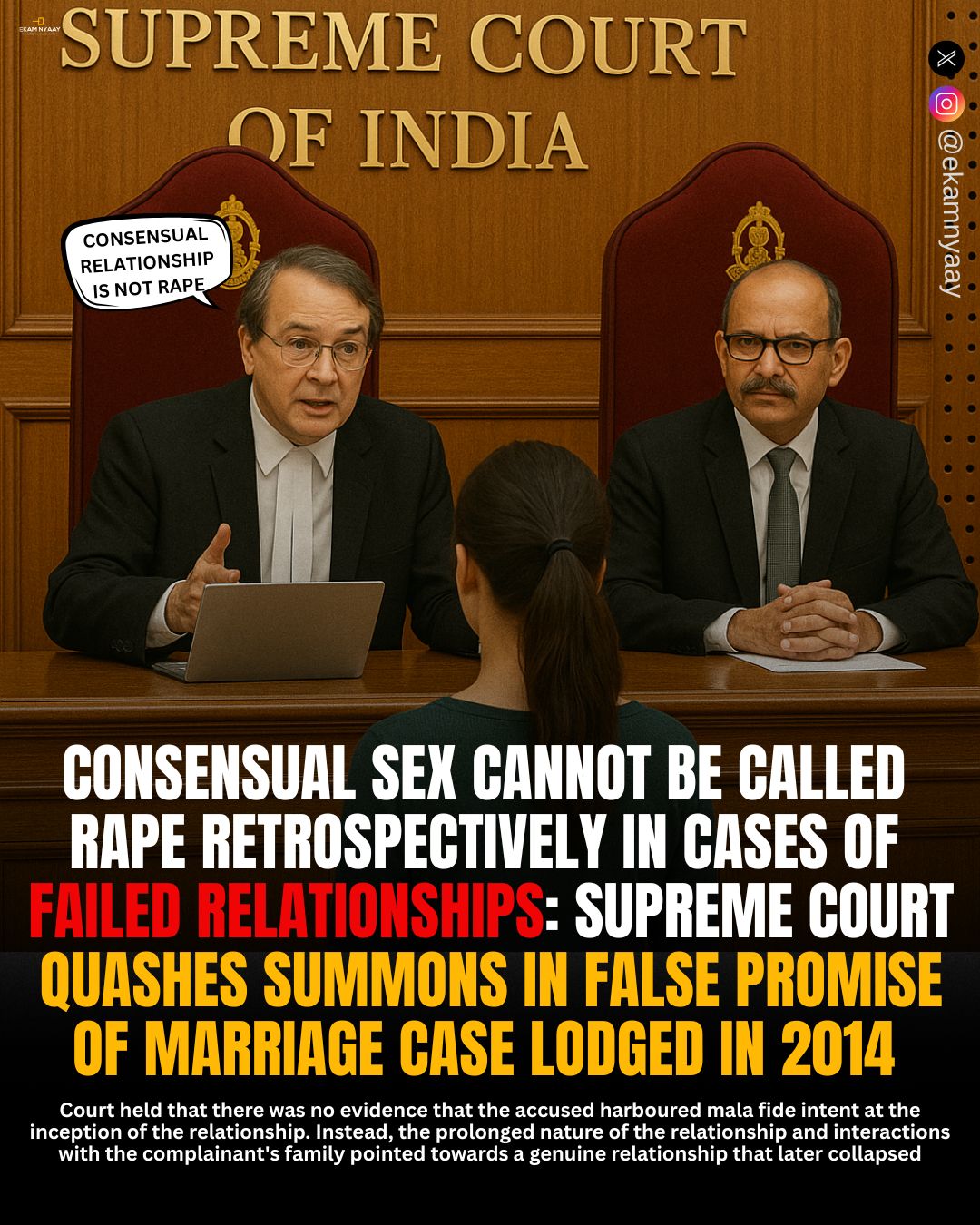
In Pradeep Kumar Kesarwani v. The State Of Uttar Pradesh & Anr., Supreme Court quashed the case against the petitioner accused of rape on the false pretext of marriage holding that the complaint was frivolous, delayed, and devoid of credible particulars. Court observed that consensual relationships cannot be retrospectively converted into allegations of rape unless mala fide intent to deceive existed from the very beginning.
The case arose from a private complaint lodged by the respondent in 2014, claiming that the appellant had raped her under a false promise to marry, threatened to viral her explicit video, and forced her into an abortion. She further alleged that during a meeting, the appellant and his associates insulted the complainant and her guardian with caste-based slurs and refused to marry her. The complaint spanned alleged incidents from 2010 to 2014 and included charges u/s 376, 323, 504, 452, 377, 120B IPC and 3(1)(10) of the SC/ST Act.
The ACJM took cognizance of the case and issued summons to the accused u/s 376 of IPC initiating a magisterial inquiry u/s 202 CrPC. The appellant challenged summoning order before the High Court, which dismissed his application, leading the appellant to approach the Supreme Court.
Supreme Court noted serious flaws in the complaint. It emphasized the lack of material particulars, such as the absence of exact dates and places, and pointed out the unreasonable delay of 4 years in filing the complaint. Court observed that none of the allegations were supported by independent evidence.
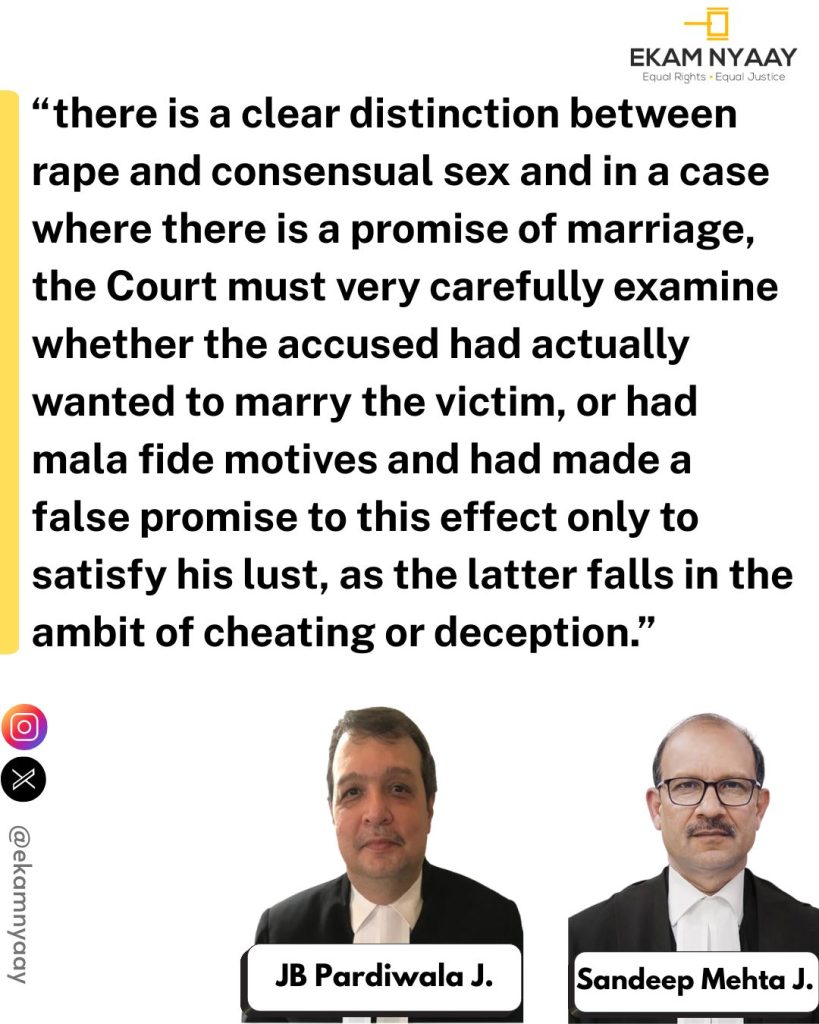
Court referred to its earlier decision in Deepak Gulati vs. State of Haryana, stating “There is a distinction between the mere breach of a promise, and not fulfilling a false promise. Thus, the court must examine whether there was made, at an early stage a false promise of marriage by the accused; and whether the consent involved was given after wholly understanding the nature and consequences of sexual indulgence.”
Court further laid out 4 steps to assess the veracity of a quashing petition: (i) whether the material relied upon by the accused is sound and indubitable; (ii) whether it would refute the charges; (iii) whether it was unrefuted by the complainant; and (iv) whether trial would amount to abuse of process.
Applying these steps, Court found that the complaint was clearly frivolous and vexatious. The fact that the complainant did not even accept the notice issued by the Supreme Court indicated a lack of seriousness from the beginning.
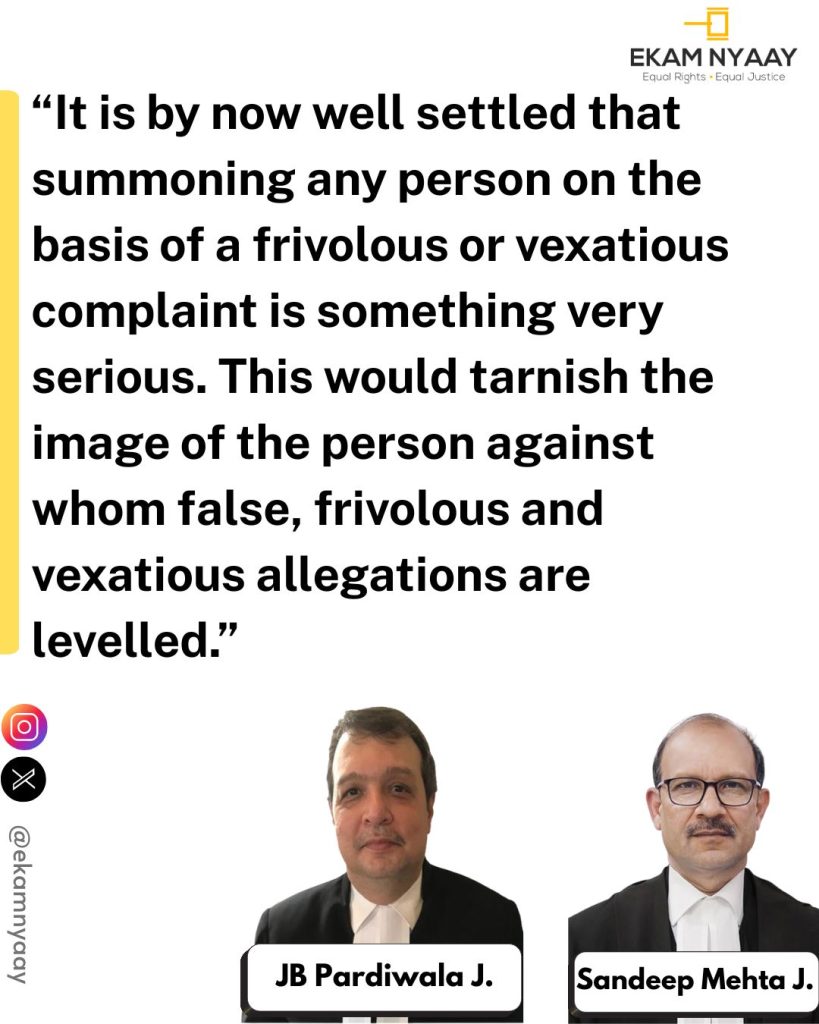
Supreme Court held that there was no evidence that the accused harboured mala fide intent at the inception of the relationship. Instead, the prolonged nature of the relationship, interactions with the complainant's family, and police-mediated assurances of marriage pointed towards a genuine relationship that later collapsed.
Therefore, Court quashed the summoning order, setting aside the High Court decision, and terminated Criminal Case pending in the Court of ACJM.
